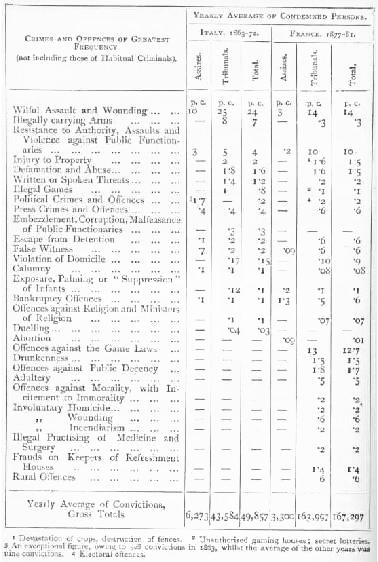Occasional Criminal
Mary Gibson is Professor of History at John Jay College of Criminal Justice and the Graduate Center of the City University of New York. Her books include Born to Crime: Cesare Lombroso and the Origins of Biological Criminality. Nicole Hahn Rafter is Senior Research Fellow at Northeastern University. Her books include Creating Born Criminals. To me an occasional would be someone who steals once in awhile.maybe to support their lifestyle or just for the thrill of it. A professional criminal could still have another job, but their main income could be from crime. Also, they would know what they are doing.have a lawyer and be careful about their work. FICHL Occasional Paper Series No. 2 (2011): Richard J. Goldstone: South-East Asia and International Criminal Law เอเชียตะวันออกเฉียงใต้กับกฎหมายอาญาระหว่างประเทศ (Thai version) Torkel Opsahl Academic EPublisher Oslo, 2011.
5 Characteristics of professional crime andcriminals
Sutherland (1965: 240) has given the following six characteristics of professional crime:
1. Regularity, i.e., continuity in work as crime.
ADVERTISEMENTS:
2. Technical skill, i.e., use of complex techniques for committing crime which have been used in crime over a long period of time.
3. Status, i.e., enjoying a position of high prestige in the world of crime.

4. Consensus, i.e., sharing of common values, beliefs, and attitudes with other criminals.
5. Organisation, i.e., pursuing activities through an informal information and assistance system.

Occasional Criminal Vs. Professional Criminal
6. Differential association, i.e., association with other professional criminals to the exclusion of ordinary criminals as well as law-abiding persons.
Caldwell (1956: 57) has given the following characteristics of a professional criminal:
1. Crime is his main source of livelihood: He devotes his full working time and energy to it and constantly attempts to improve his skills. He tries to specialise in one or two crimes. He normally obeys the law, except when it interferes with his crime.
.djvu/page265-1024px-Stevenson_-_The_Merry_Men_(1905).djvu.jpg)
2. Crime is his way of life: The professional criminal develops a philosophy of his own and organises his life and activities around new values, attitudes, and beliefs.

ADVERTISEMENTS:
Occasional Criminal Lombroso
3. He operates with proficiency and carefully plans his activities: He takes calculated risks and dislikes those who bungle and fail. He differs from the habitual criminal in the sense that the latter commits crime regularly but without specialised skills.
4. He is a product of a process of development: He acquires his specialised knowledge, attitudes, and skills gradually. Usually, he acquires skills under instruction from and guidance of somebody who has already achieved proficiency and status in his criminal speciality. However, no formal process of recruitment and training is involved in the development.
Some professional criminals begin their careers as juvenile delinquents, some as adolescent criminals, some as youth criminals and some take the first step only after achieving adulthood and move from legitimate means of earning their livelihood to a life of criminality.
5. He identifies himself with the world of crime and criminals: His friends, security, affection, recognition, sympathy, and respect, etc. all come from the underworld. This does not mean that he totally cuts himself apart and becomes isolated from the conventional world. He continues to have friends and acquaintances in the law-abiding world also.
Occasional Criminal Definition
